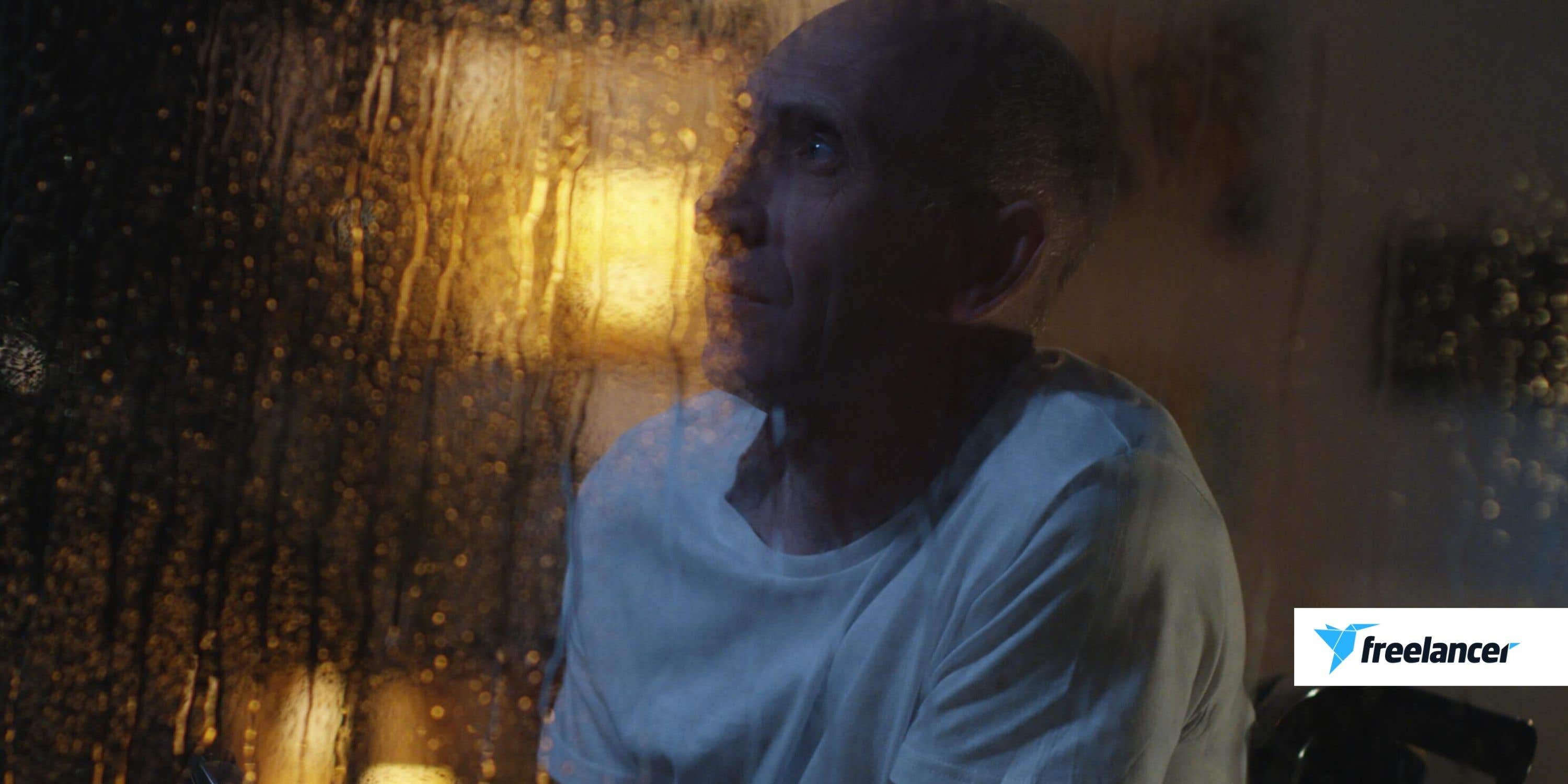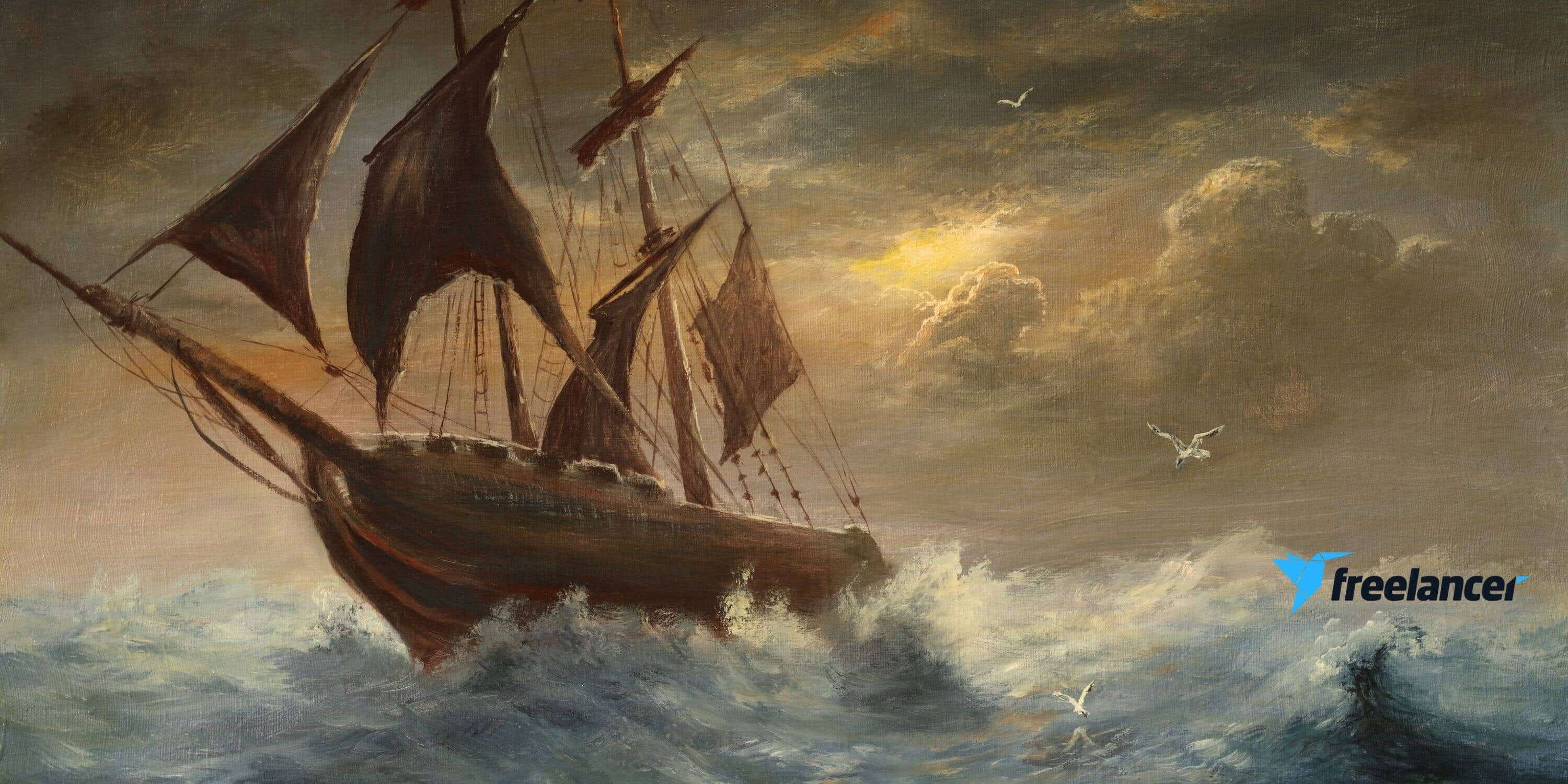Yapay Zekâ (AI) İş Danışmanınız Ava ile Sohbet Edin
Merhaba, ben Ava, işinizi güçlendirmek için AI (Yapay Zekâ) rehberiniz!
İster zaten bir işletme yürütüyor olun, ister bir işletme açmayı hayal ediyor olun, Yapay Zekâ (AI) destekli freelancerları kullanarak hayalinizi gerçeğe dönüştürmenizde yardımcı olmak için buradayım. İş hedeflerinizi paylaşın ve birlikte yetenekli freelancerlarımızın teklif verebileceği bir proje oluşturalım. Haydi, hayalinizi gerçek yapalım!
Bir işe sahibim
Bir işletme açıyorum
Görüşmeyi e-posta adresinize gönderirken bir hata oluştu. Lütfen daha sonra tekrar deneyin.
Görüşmelerinizi her saat yalnızca bir kez kayıt edebilirsiniz. Lütfen daha sonra tekrar deneyin.
Bu görüşme çok kısa. Kayıt etmeyi aktifleştirmek için Ava ile konuşmaya devam edin.
Brands that nailed their Coronavirus response (and brands that whiffed it)
It's a tricky time to be marketing a brand, and it calls for added sensitivity. Here are some brands that have done it well, and some that haven't
29 Nis 2020 • 8 dakikalık okuma
11 Ara 2020 tarihindeKym D. tarafından güncellendi.

Passionate writer, journalist and editor
Panoya kopyalama başarısız, lütfen izinlerinizi düzenledikten sonra tekrar deneyin.
Panoya kopyalandı.

Your brand needs to pay attention to its marketing messaging during this turbulent time
With the coronavirus (COVID-19) turning the world upside down, businesses quickly reinvented themselves to stay viable, changing their public personas and marketing messaging to stay relevant in the current state of the pandemic. And stressed out consumers may long judge brands for the level of sensitivity in their advertising. During these times, companies walk a fine line with their messaging.
Facing a climate of fear, a survey by Advertiser Perceptions revealed 48% of respondents adjusted the type of media used. And others redistributed their advertising budget among different media types. Almost half of respondents either delayed or pulled a campaign due to COVID-19 as it was not suitable. It is a time to be sensitive to what can upset consumers. Even what appears to be harmless such as using disinfectant wipes or walking the streets in masks can upset consumers as they are hard to get.
Brands cannot continue business as usual. They have to rethink their messaging or there can be a negative public reaction. Any depiction of carefree lifestyles only reminds people of how life rapidly changed. It is also a missed opportunity. A brand changing its website and messaging to reflect the current crisis shows empathy. It also demonstrates it is listening which is what consumers connect to.
Brands getting it right
So many organizations across the world are joining forces to help minimize the impact of the virus on communities. We could list hundreds of organizations going out of their way to make sure consumers have what they need. Here are only five of them, chosen to show a cross-section of companies stepping up to help.
Brewers fight back with sanitizer instead of beer
Global brewer AB InBev is turning its alcohol into disinfectant and hand sanitizer to fight back against the virus. Brewing beer for more than 600 years, it is donating more than one million bottles of hand sanitizer and disinfectant to health workers and hospitals in more than 20 countries.
AB InBev subsidiary, South African Breweries (SAB) is providing alcohol so manufacturers can keep up with the demand for hand sanitizer. And its trucks are delivering to some of the most remote parts of South Africa.
With around 170,000 employees in almost 50 countries, AB InBev is working with governments to support some of the hardest hit communities in Ecuador, Colombia and Peru. Its trucks are delivering vital medical supplies and food to these areas.
In Europe, it is producing 50,000 liters of alcohol for disinfectant which is surplus from making alcohol-free beer. It is also providing a further 26,000 bottles of hand sanitizer to workers on the front line and to pharmacies throughout Europe.
Cisco commits $225 million
Cisco Systems commits $225 million to support government responses, education, healthcare and technology. The United Nations Foundation’s COVID-19 Solidarity Response is distributing part of these funds.
But Cisco’s technology is also helping more than 2.2 million secure an online presence for working remotely and those on the front line. To date, its Webex platform has let German, Canadian, Colombian and French governments coordinate responses to the pandemic through video conferencing.
Cisco is one of more than 30 technology companies from Silicon Valley backing local organizations who support disadvantaged communities.
LEGO supports children
The LEGO Foundation is donating $50 million to ensure children around the world can continue to learn through play. From children in quarantine, refugee camps and war-torn countries, it will ensure children have the essentials for education and play.
In another initiative, LEGO has setup a new website for families from across the world to engage with play-based learning through social media. The aim is for families to share play ideas and creativity from the free website . Children can also learn from LEGO’s designers to help them build critical thinking and problem solving skills during school closures. LEGO’s goal is to relieve parents’ stress during the pandemic.
PepsiCo distributes 50 million meals to vulnerable communities
As part of its $45 million pandemic response initiative, PepsiCo is distributing 50 million meals to the world’s vulnerable communities. It is also distributing personal protective equipment for healthcare workers, and screening and testing services.
PepsiCo is also concentrating on distributing meals, equipment, transport and equipment to disadvantaged communities in Europe. And in America, PepsiCo is opening up access to food for children and giving unemployed restaurant workers financial support and access to medical services.
In Asia Pacific, Latin America, the Middle East and Africa, PepsiCo is distributing meals and ensuring food banks have the support they need to feed low income communities.
Google commits $800 million to fight coronavirus
Google commits to support small and medium businesses, healthcare workers and organizations and governments through its $800 million pledge.
It announced $250 million in advertising grants for global government agencies and the World Health Organization to get critical information about COVID-19 to the public. Other grants include:
Google has a website devoted to iCOVID-19 that has resources to help people from across the world.
Brands behaving badly
Most brands are stepping up to change the way they do things. So many are contributing in a positive way so it was hard to find negatives. Among the negatives was the slamming of McDonalds Brazil on Facebook when it updated its logo with the golden arches separated to promote social distancing. Senator and erstwhile presidential candidate Bernie Sanders weighed in on the criticism tweeting “@McDonalds give your workers paid sick leave”.
Volkswagen was another to receive a cool response when launching its new temporary logo with the V and W separated. And so did Audi when separating the circles on their logo. These are seen as gimmicky PR stunts rather than moving people to socially isolate.
Brands being humorous is also not going down well with people right now. There is nothing humorous with what everyone is facing and how it affects them. The trick is for brands not to be seen as cashing in on the crisis or appear insensitive.
The problem brands walk a fine line. On the one hand what can strike a chord with someone working from home overwhelmed with the children can push away someone suddenly unemployed.
Mindsets are more in the realm of “I can barely buy food or pay the rent and you want to sell me something?” More than ever people need support and help so as not to end up living in the streets. With so many forced out of work into social isolation, people fear an unknown future.
Ecommerce giant attracts bad press
Amazon is receiving bad press for its perceived treatment of its workforce. Workers blame Amazon for the common failures of workers COVID-19 tests. Working in crowded centers, social distancing is tough at best. But this is made tougher with Amazon threatening to fire people for intentionally violating the guidelines to stay 6 feet apart. Workers say this is impossible at the best of times. But trying to keep up with the overload of demand for essential goods it is even worse. And Amazon is sending people with a fever home to face an uncertain future.
While Amazon expects workers to use accrued sick leave it is too bad if they do not have any. They are left to fend for themselves without pay. This is contrary to their announcement on March 20 offering “up to two weeks of pay for those who test positive for COVID-19 or are quarantined”. Workers say they are not offering preventive measures and centers are not properly sanitized when workers test positive. There is also not enough hand sanitizer or protective equipment available although Amazon lost its first worker to COVID-19 on March 31. This triggered walkouts at several centers in protest at Amazon’s handling of the pandemic.
While Amazon says nothing is more important than its workers’ safety, reports say it tried to shut down workers speaking out at a virtual event.
Now Amazon has fired two workers for allegedly speaking out and organizing protests. The National Labor Relations Board is looking into multiple complaints from Amazon workers during the pandemic.
Amazon is trying to balance worker safety with the huge increase in demand from consumers during the COVID-19 lockdown. But it continues to face criticism from is workers.
Funeral home charging additional fees on prepaid funerals
A Sydney funeral home is charging additional fees on prepaid funerals of people who died from COVID-19.
One person bought a prepaid funeral six years ago but died after contracting COVID-19 while aboard the Ruby Princess. Thinking the funeral was fully paid for, the grieving family got a shock when told there was an additional fee of $440. When they questioned the fee, the reply was because his death was the result of the virus.
The family accused the funeral home of profiteering from the pandemic. And questioned how it was any different from handling anyone else who died from an infectious disease.
According to the funeral home they have to take extra care and wear full personal protective equipment. They said there are additional costs for specialist cleaning after handling a coronavirus body.
Nowhere in the contract does it say there are extra costs for death from an infectious disease.
Lawyer Richard Mitry checked the prepaid contract and said the contract did not allow for extra frees. He said the $440 fee was profiteering. "[The] extra charge not only is a potential breach of the Australian consumer law, a breach of the contract itself but it's completely immoral. There is no basis whatsoever for this charge to be levied," Mr Mitry told A Current Affair
When the family asked the funeral home for more details, they told him the pandemic was negatively affecting the business. They also said the prepaid funeral had not had a good return in the funeral fund. Prices increased over 6 years and the funeral would cost more than the original investment.
The family paid the additional cost to avoid any more stress but felt the additional charge was not right.
The question is, what happens if the family could not afford the extra cost?
Not all brands will survive the pandemic
Not all brands can quickly innovate or change their business model to survive the pandemic. But many can and are. Good organizations show up the bad by creating change across the world for the better. Improving life for their customers, staff, healthcare workers on the frontline, vulnerable communities and the environment.
Bad companies still dodge paying tax, lure people in to gather their data and use tone-deaf brand messaging still peddle their wares. But the pandemic has seen unlikely partnerships form between supermarkets, and businesses and people from every corner of the world. They work together to help everyone survive unprecedented times. Other organizations may have no other choice than to try and weather the storm.
Cruise lines offer ships as makeshift hospitals. Hotels house health workers and offer rooms for quarantine. Banks defer home loans. Companies promise not to send staff into unemployment or provide paid leave. Technology providers offer free internet hotspots in cities. Others turn to manufacturing personal protective equipment instead of clothes. Organizations have shut down alcohol production for consumption to produce disinfectant and hand sanitizer. Councils are waiving late fees.
Where brand messages are disingenuous, there will be nowhere left to hide. They will no longer be able to fake it to their target audience unless they step up to help in some way. Some brands will disappear because they cannot adapt to a new world. Others will innovate and flourish where consumers recognize and respect shared responsibility and sincerity.
Bize ne yapmaya gereksinim duyduğunuzu anlatın
Proje adınızı girin
İlgili Hikayeler
Siz projenizde yardımcı olması için Teknik Co-Pilotlarımızdan biriyle konuşun
Sadece Sizin İçin Tavsiye Edilen Makaleler

In this post we highlight the top consumer trends amidst the Coronavirus so that you can market your business effectively in this economic climate.
10 min read

Is your business prepared to weather this profound period of change? Learn how to succeed while working from home.
12 min read

Most entrepreneurs fail to grow their startup because they are just not expert marketers. We teach the best marketing strategies that work today.
31 min read

Remote work is becoming the norm for companies globally, especially in the wake of Coronavirus. Learn how to get the most out of remote workers
6 min read
Teşekkürler! Ücretsiz kredinizi talep etmeniz için size bir bağlantı gönderdik.
E-postanız gönderilirken bir şeyler yanlış gitti. Lütfen tekrar deneyin.
Ön izleme yükleniyor
Coğrafik konum için izin verildi.
Giriş oturumunuzun süresi doldu ve çıkış yaptınız. Lütfen tekrar giriş yapın.




